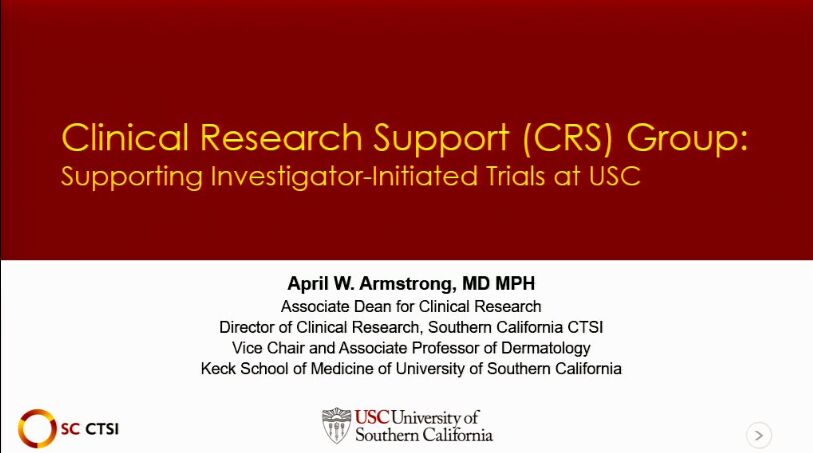- Clinical Research process: Phases of clinical investigative research study include,
- Protocol development
- Review to activation
- Conducting study
- Reporting/dissemination
- Challenges in conducting investigator initiated studies:
- Identify available clinical research support resources
- Maintain a qualified and on-demand study coordinator pool
- Access to expertise in budgeting, biostatistics and recruiting
- Clinical Research Support (CRS): Single stop access to all available services for the investigator to develop, activate, conduct and report results for clinical trials. The focus is mainly on the investigator-initiated studies and non-cancer trials.
- CRS group services available for the efficiency of the investigation:
- Protocol development and study planning:
- Research navigation
- Clinical research informatics
- Biostatistics core and study design
- Recruitment support
- Budgeting
- Technology transfer
- Review to activation
- Feasibility review
- Scientific review
- IRB review, study registration
- Study conduct
- Recruitment
- Study coordinator pool, Clinical Trial Unit (CTU)
- Clinical trial management-ENCORE
- Data management systems
- Coordination of ancillary services like laboratory, pharmacy and radiology.
- Study monitoring and closure
- Protocol development and study planning:
Regulatory Science Symposium: Special Populations Session 2: Clinical Research Support (CRS) Group (2017)
In this session, we will discuss clinical trials at USC and the services available for assistance.
Research & Study Design
Regulatory & Quality Sciences
Course Syllabus/Topics
Acknowledgement
Accompanying text created by Priyanka Ramasamy | Regulatory Science Graduate Student Worker | pramasam@usc.edu
